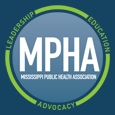Keywords
infant mortality, Head Start, health disparity
Document Type
Research Studies
Abstract
IMR (11.9 infant deaths per 1,000 live births) almost twice the rate observed in (6.2 infant deaths per 1,000 live births). Objectives. The purpose of this project was to assess Head Start teachers’, teacher aides’, caregivers’, and family support workers’ perceptions, knowledge, attitudes, values and beliefs on topics (nutrition, exercise, breastfeeding, safe sleep, smoking, stress, postpartum depression, and mental health) related to infant mortality prevention in a Mississippi Gulf Coast Head Start consortium. Methods. A 47-item questionnaire was developed that focused on areas associated with primary prevention of infant mortality. Results. Participants (n=82) ages were 25 to 44 years of age and African American (80.8%). Most were teachers (43%) and had Associate’s degrees (48.8%). Participant knowledge and comfort level with providing information to families varied widely across the content areas. Conclusion. Head Start workers provide direct support for families at risk for experiencing the loss of an infant within the first year of life. Evaluating perceptions, knowledge, attitudes, values and beliefs related to infant mortality prevention can inform the development of strategies, prevention programs, and continuing education opportunities for Head Start workers.
Recommended Citation
Mayfield-Johnson, S.,
Fastring, D.,
&
McLeod, S. T.
(2023). Assessment of knowledge and attitudes toward determinants of infant mortality in Head Start teachers, teacher aides, caregivers, and family support workers.
Journal of Public Health in the Deep South, 1(2), 2.
DOI: https://doi.org/10.55533/2996-6833.1009

